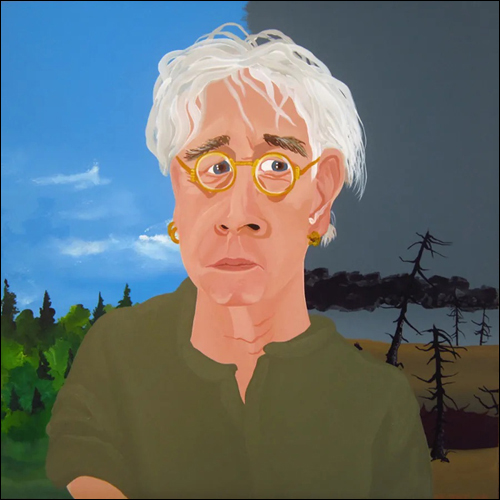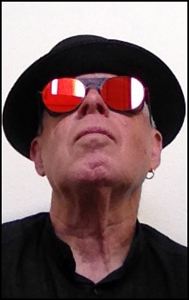by Adam Perlmutter – PremierGuitar.com
19 December 2017 –
“I see the way the music unfolds as a kind of architecture,” says Bruce Cockburn. “There’s a sense of visual shape that goes with how a melody moves.”
After Bruce Cockburn released his self-titled debut album in 1970, the prolific Canadian singer-songwriter released at least one album every couple of years, yielding a body of work that would be covered by everyone from Chet Atkins to Michael Hedges to Jerry Garcia. But following his 32nd album, 2011’s Small Source of Comfort, things appeared to suddenly dry out.
Cockburn hadn’t disappeared but had transferred his creative energies from songwriting to penning a memoir. In Rumours of Glory, published in 2014, Cockburn shares his personal and political life—he’s a longtime activist who has spoken out on human-rights violations and ecological devastation, among other things—and offers insights into his most popular songs, like “Wondering Where the Lions Are” (from 1979’s Dancing in the Dragon’s Jaws) and “If I Had a Rocket Launcher” (on 1984’s Stealing Fire).
The period he spent working on the memoir also coincided with the birth of a daughter, and between the demands of fatherhood and writing, Cockburn didn’t feel he had any new songs to offer. In fact, after the book was completed, he wondered if his work as a songwriter was ending, too.
But then Cockburn was asked to contribute a song for the 2015 documentary film Al Purdy Was Here, a portrait of the late Canadian poet, and other new songs soon followed. These tunes are collected on Bone On Bone, which Cockburn recorded with his core band of bassist John Dymond and drummer Gary Craig, along with his nephew John Aaron Cockburn on accordion, and jazz trumpeter Ron Miles on flugelhorn.
Cockburn now lives in the United States, and, lyrically speaking, Bone On Bone is a product of life in the Trump era. Musically speaking, it’s a product of Delta blues, modal jazz, and non-Western influences—all distilled in the guitarist’s idiosyncratic fingerstyle approach, with its intricate counterpoint.
Calling from his home in San Francisco, the 72-year-old Cockburn discussed his return to songwriting, shared one of his secret guitar tunings, and explained why his Manzer instruments have been his longtime companions.
“Putting music to a set of lyrics is like scoring a film. You have words that need to be served by the music.”
After completing your memoir Rumours of Glory, you decided you wouldn’t go back to writing songs. Why did you change your mind?
It wasn’t really a firm decision. I just wasn’t sure about returning to songs, because it’d been such a long time since I’d written anything of that sort. The creative energy that went into the book is what would’ve gone into songs if I hadn’t been writing a memoir. Also, I started the book when my second daughter, who’s now 5 years old, was born. Not only was I having to embark on this completely new kind of writing enterprise, but also I was getting no sleep because of the baby. All of that just conspired to make an absence of songs. After the book was put to bed, I thought, it’s been a long time since I wrote songs, maybe I’m supposed to be doing something else now or maybe not. It was just wait and see. Then, during that waiting and seeing, I was hoping song ideas would come. Luckily, they did.
Did you learn anything about your songwriting in the process of working on the book?
I don’t think I learned anything I didn’t already know. It was in some ways instructive to go back over all that old ground, but all along I’ve had a pretty good handle on how my writing process works. It’s been this wait-and-see thing ever since 1970, when I tried being a disciplined writer for a year and that didn’t really work for me. This is in the book—I ended up with about the same amount of usable material at the end of the year of diligently writing every day as I would have if I had just waited for good ideas. Mostly what I was writing was just throwaway stuff. After that, I didn’t bother anymore, I just waited.
The Canadian fingerpicker’s 33rd album features his nephew John Aaron Cockburn on accordion and jazz trumpeter Ron Miles on flugelhorn, and was produced by longtime collaborator Colin Linden.
The opening song on Bone On Bone is called “States I’m In,” and overall the album seems to have kind of an anxious energy. Does the current political situation here in the U.S. factor into the writing?
In an indirect way, it definitely does, as it does for all of us. Who gets through a day without saying the name Trump? You can’t these days. It’s just ridiculous, the degree that his showmanship is able to keep us paying attention to the stupid things he does. In that sense, it’s definitely part of “States I’m In,” it’s part of “Café Society” … any of the things that have exterior references in them, pretty much. The political atmosphere certainly colors the songs.
On “Bone On Bone,” you’ve got an interesting concept going on—a combination of McCoy Tyner-sounding chords and blues fingerpicking moves. How did you arrive at that synthesis?
It’s a good question. I date myself every time I do that, because I’m a product of that period [modal jazz of the 1960s] very much. I went to Berklee for a couple years, studying jazz composition. Coming out of high school, that’s what I thought I was going to be doing with my life. Being surrounded by people who were dedicated to music and by the sound of their music 24/7 for a couple years was really great, and many influences came into my music because of that.
I’d already had a great interest in jazz, and I was a big fan of Coltrane and all that stuff. At the same time, I was listening to Mississippi John Hurt and Big Bill Broonzy and all the older bluesmen, trying to fingerpick like them, which I never really learned how to do. In the process, I ended up mixing a kind of mutant fingerpicking with a lot of the jazz elements that I was learning.
At first, I was self-conscious about the jazz thing. I didn’t want to invite comparison with actual jazz guitars, because I didn’t think my playing warranted that. I’m not that great an improviser and have never been any good at playing on changes and stuff like that. So I didn’t include jazz in my own musical thinking for a long time. It crept in little by little. By the mid ’70s, I had enough confidence to bring in actual jazz musicians to play with me in the studio, and to some extent live. Then it grew from there.
Cockburn favors a tuning he calls EGAD. “It’s like DADGAD,” he explains, “but with the 6th string kept at E instead of lowered a step. I like how easy it is to get that McCoy Tyner movement under your fingers in that tuning.”
Continue Reading…








